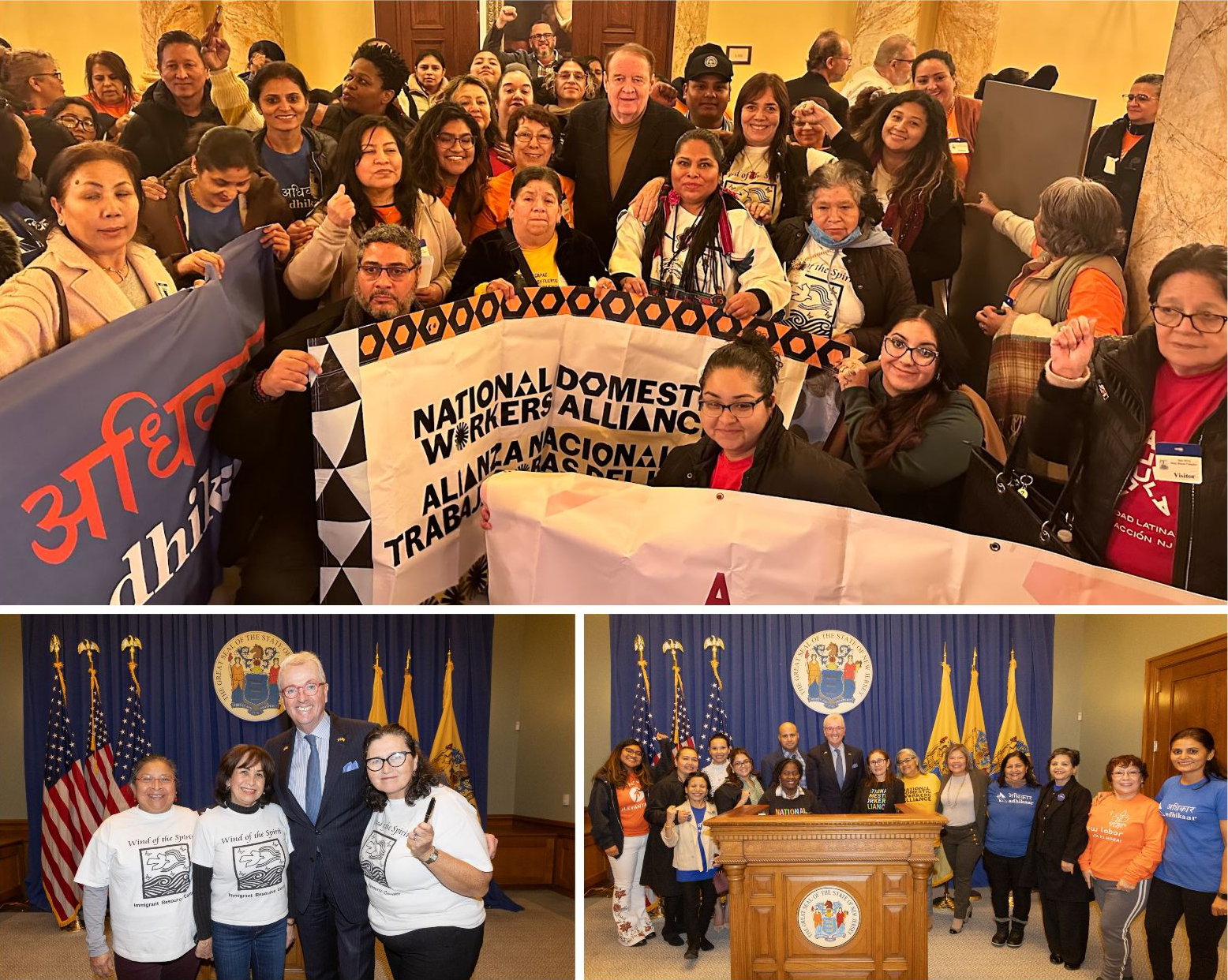What is the New Jersey Domestic Workers Bill of Rights?
The New Jersey Domestic Workers Bill of Rights was signed into law by Governor Phil Murphy in January 2024. The bill includes basic legal rights for New Jersey’s 50,000 domestic workers, many of whom have experienced wage theft, denial of breaks, and lack of sick leave.
For years, domestic worker leaders in New Jersey, mostly women of color and immigrants, have pushed for this legislation to grant domestic workers the same basic labor protections as other workers in the state. This victory is a testament to the power of grassroots organizing led by domestic workers across the state, and the leadership and vision of the NJ Domestic Worker Coalition: Adhikaar, Casa Freehold, Lazos America Unida, New Labor, Unidad latina en Acción NJ, Wind of the Spirit, and NDWA.

New Jersey organizers celebrate the passage of the New Jersey Domestic Workers Bill of Rights
What rights are included in the bill?
The New Jersey Domestic Workers’ Bill of Rights will:
- Provide paid breaks and meal times
- Establish written contracts between domestic workers and employers
- Protect domestic workers against discrimination, harassment, and retaliation.
- Ensure advance notice of termination and other protections for live-in workers, such as privacy and anti-trafficking safeguards.
The bill also includes provisions to facilitate enforcement of domestic worker rights and educate workers and employers about the law.
Learn More About This Bill
Background of the New Jersey Bill of Rights
Domestic work is one of the most important and fastest growing jobs in the country, yet it is some of the most unprotected and vulnerable work, excluded from basic labor rights and protections and primarily done by women of color and immigrants. In New Jersey alone, domestic workers are subject to wage theft, unstable schedules, lack of access to basic workplace protections, benefits, and more. According to a 2020 Rutgers report:
- 57% of New Jersey domestic workers surveyed were subject to wage theft
- 18% reported schedules changing week to week
- 54% of workers lack health insurance
- 49% of workers lack paid vacation and sick days
- 90% of workers don’t have a written contract to protect them
What are the next steps to make this law real in the lives of domestic workers?
If you are a domestic worker or feel passionately about ensuring that domestic worker rights in New Jersey are protected and enforced, stay connected and get involved with our work.
